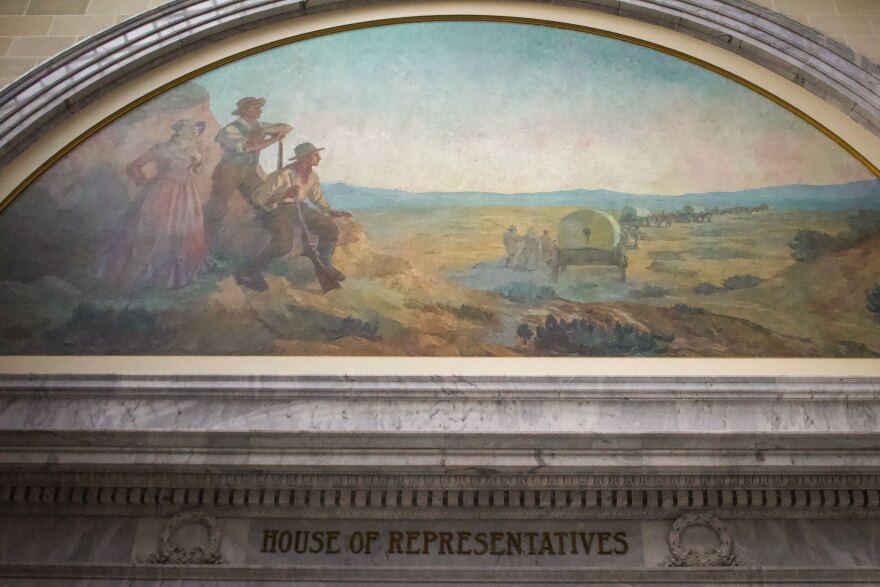In a rare occurrence, Equality Utah and the Utah Eagle Forum both support a bill dealing with conversion therapy. This is the practice of changing a person’s gender identity or sexual orientation.
The bill, HB228, would institute an outright ban on the practice and clarifies what therapists are allowed to talk about with minor patients regarding gender identity and sexuality.
A 2019 rule established by the Division of Professional Licensing barred therapists from attempting to change a patient’s sexual or gender identity. The following year, Utah lawmakers passed a ban on conversion therapy.
The original version introduced this session, and sponsored by Republican Rep. Mike Petersen, watered-down the definition of conversion therapy. It stated that “verbal or written communication by itself does not fall within the definition of conversion therapy.”
Marina Lowe, the policy director with Equality Utah, said that language didn’t bode well with the LGBTQ rights organization.
“In its original form, [HB228] only banned physical forms of conversion therapy,” she said. “And so therefore, logically, that meant that it legalized verbal or talk conversion therapy, which is essentially all that is being practiced anymore.”
Equality Utah negotiated with sponsors and other stakeholders to address their concerns. The talks ended in a substitution that removed the weakened definition and outlined how therapists can navigate conversations about sexual orientation and gender identity with minors.
The conservative Utah Eagle Forum backed the changes, but its reason for supporting it differed from Equality Utah.
Gayle Ruzicka, president of Utah Eagle Forum, said she was troubled by the administrative rule because it “stymies” a therapist from “what they can say and do” when working with children, specifically youth questioning their gender or sexual identity.
“The therapist just had to be affirming and couldn't really have a thorough discussion,” she said. “All the therapist can say is ‘Well, if you think you're a girl, then you're a girl. If you think you're a boy, you're a boy.’”
It’s a rule that Rep. Petersen also wanted to change. He alleged that therapists actually left the state because they feared losing their licenses over it.
“Imagine [a] 13-year-old girl. She’s experiencing body changes. She’s got all kinds of social pressures. She’s feeling confused and unsure about her gender. She wants to have an open and honest conversation, but she can’t because her therapist knows that by [the] rule, they’re prohibited from doing anything but affirming the young girl’s idea she may be a boy,” Petersen said during a committee hearing.
The change made to the bill now stipulates that therapists are allowed to investigate a patient's struggles with gender and sexual identity without automatically affirming it.
Rep. Brady Brammer, R-Pleasant Grove, said a therapist diving deeper into why a child is questioning their sexual or gender identity wouldn’t be considered a form of conversion therapy.
“Now, if the conversation is the therapist is coming in and saying, ‘then it's time for you to change those feelings. It's time for you to change your sexual orientation. And I've got a formula for you to get there,’” he said. “That's not appropriate.”
Lowe said the bill substitution “threads the needle” to achieve an outcome that addresses both concerns.
For Equality Utah, it was codifying clearly that conversion therapy is prohibited in the state. For Utah Eagle Forum, it was clarifying what therapists can and cannot discuss with clients under 18.
The substitution passed unanimously in committee. The bill is currently in the House where it is poised to pass before moving on to the Senate.






